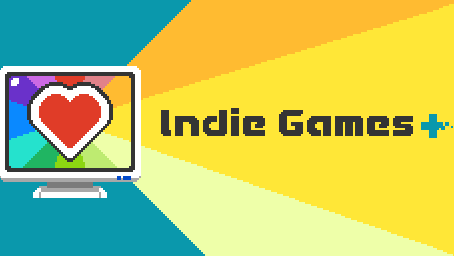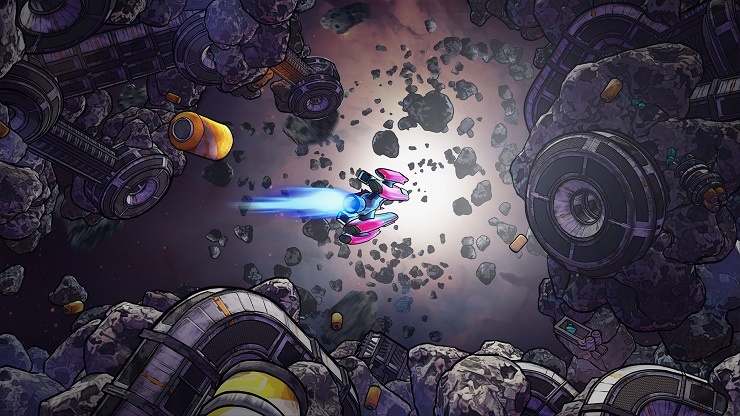David Jimenez of 2Awesome Studio sat down with us for another Publisher Profile, chatting about how they can help a developer speed up their console ports.

Who are you?
David Jimenez, 2Awesome Studio: Hi, I’m David Jimenez co-founder of 2Awesome Studio and 50% of the company. I’m the game designer of the studio and I also take care mostly of PR, marketing, and all the boring publishing stuff.
Can you tell us a bit about your company?
We started as an indie studio (and we are still primarily that) but recently we have started also working as a publisher in parallel. We are only two people at 2Awesome, myself and my colleague Alejandro Santiago. We started 2Awesome Studio first as a hobby where Alejandro and I just made some games for fun in our free time. Then we decided to make our first proper game with Dimension Drive. We funded the project through Kickstarter and eventually we managed to release it on PC and every major console (Switch, PS4 and Xbox One).
We both come from a highly technical background. That, combined with the experience we gained with Dimension Drive, is what drove us towards publishing side. Since then, we have published The Bug Butcher and Back to Bed on Switch, and we are now working on Lost Wing and Inferno 2 that will be released soon on Switch, PS4 and Xbox One.

What work do you do to help developers reach an audience? How do you make developers’ lives a little easier?
Everyone would probably say the same thing, but we are a special type of publisher. There are publishers of various sizes, and the services that they offer can vary wildly from simply taking care of the publishing side of things to more comprehensive deals that include PR, marketing, porting, localization, age ratings…the list can go on and on. What makes us different is that we like to think of ourselves as an extension of your indie studio.
Our primary focus is on PC and console publishing, as it is there were we can bring the most added value. We offer all the typical services (publishing, PR, marketing, age ratings, localization, platform holder relations…) but we also take care of porting the games to all major consoles. We do everything in-house and charge nothing up-front to developers (we re-coup from sales).
As I said, our core skill is being highly technical, so we handle the development of console versions all by ourselves in-house. For a developer that has never done the process, launching on consoles can easily add one year or more to the development time. We significantly cut that time down so developers can concentrate on other things or work on their next games. We start from the original source code provided by the developer and then take care of all the rest ourselves.
We also have a good relationship with platform holders, and depending on the game and the moment we’ve managed to be featured, which helps boost sales. Besides this, we have a network of partners we work with that can launch our games in other regions (think Asia and Japan, for example) or do physical editions in some cases like we did with Dimension Drive.
What is it that you’re on the lookout for (genres, content, etc.)?
We have started working with developers that we already knew about or have a good relationship with. But in general, we look for games that are in the latest stages of development as we start the porting process at that moment. We can, of course, sign games much sooner, but then it means waiting until they are done to be able to do our work.
We don’t have a genre or content type in particular. We look at it from three angles, and decide to go forward based on these: quality, size, and potential. We look at games that have a comparable quality in terms of production values and fun as our own games. The next thing is size – we can take care of projects of small and medium size, meaning that if you bring us a huge open-world game or a competitive online experience, we are probably not the best fit (this is almost never the case for indie developers, in any case). Finally, we are here to make great games, but we also want our games to succeed, so we check the potential of a game against the amount of cost it is going to take and advise the developers based on that.

What do you look for in the games you choose to publish? In the developers you want to work with?
We look for games that have high quality production values and that we enjoy playing. Both Alejandro and I check the game, and if we both like it, then we proceed. Regarding the developers themselves, we don’t really have a standard for that. As long as we have somebody professional on the other side, it works for us.
Is there anything developers do to make themselves more appealing to publishers? Anything they do that makes them less appealing to publishers?
Never start a pitch listing your problems and asking for help solving them. We know everyone faces issues and we are all in a very difficult industry, but when a pitch starts discussing all the problems a developer is facing, it sends really bad signals.
The second one is trust. We are kinda new to the publishing business, but we are not new to the industry. If a developer starts a relationship with trust issues or feeling that the publisher is somehow the enemy, then that’s a big problem. We are all here trying to survive, and that means we’re all pushing towards the same goal. In our case, it is even more true as we become kind of part of their team as the console expert developer group, so we really like to work together.
Finally, another thing that puts publishers off is unrealistic expectations. It takes less than an hour doing basic research on the current state of the industry to get proper figures, and when a developer comes asking to move ten times as many copies, honestly we just have to walk away.

